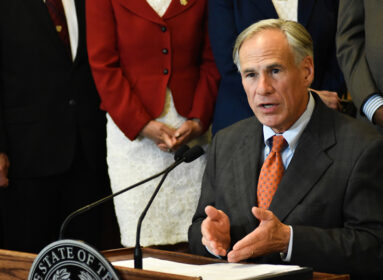
By Cindy Mindell
NEW LONDON – It’s been five months since a Facebook post about Hamas drew international attention to Connecticut College, which had become embroiled in a debate over racism, free speech, and the Israeli-Palestinian conflict. (For the full story, see “The Screenshot Heard ‘Round the World,” Jewish Ledger, April 22, 2015 – online at www.jewishledger.com/2015/04/the-screenshot-heard-round-the-world/.)
The post was one of 11 written during the August 2014 Israel-Gaza conflict by tenured philosophy professor Andrew Pessin and published on his personal Facebook page about Hamas and its behavior. It described Hamas as “a rabid pit bull chained in a cage, regularly making mass efforts to escape.”
In response to a complaint from Lamiya Khandaker, a former student of Pessin’s and the Student Government Association chair of diversity and equity, Pessin apologized and removed the post. But students had taken a screenshot of the post, which they circulated without the context of the 10 previous posts or the comments thread, which made it clear that Pessin was referring to the terrorist group Hamas, and not the Palestinian people as a whole.
As more concerns were voiced from on campus and beyond, Pessin published a letter of apology in The Campus Voice, the independent, student-run newspaper.
Pessin departed campus mid-semester on medical leave, in the wake of death threats to himself and his family for his pro-Israel stance. At the time, his intention was to return to full-time teaching in the fall, and campus administration claimed that they wanted him back in the classroom.
Since the flare-up, the college has purportedly been working to create a safe and inclusive environment for all members of its community, with input from students, alumni, and newly appointed interim deans of equity and inclusion.
The new school year opens in just two weeks, but students arriving on campus will not find Pessin there. Although he is listed in the course catalog, he will remain on medical leave, according to a representative who spoke to the Ledger anonymously and would not elaborate.
Pessin’s absence leaves unanswered several questions that came to the fore as the Facebook tumult escalated. The Ledger turned to the college and others for answers.
Question #1: As the story unfolded via letters to the editor and op-eds published in The College Voice, did the independent, student-run campus newspaper handle the issue in a fair, unbiased, and thorough manner – or did it violate its own Code of Ethics?
In mid-February, as the brouhaha was well underway, a screenshot of the deliberately truncated Facebook post was retweeted by Ayla Zuraw-Friedland ’15, then editor-in-chief of the Voice, from her personal Twitter account.
The post reached Jordan-based alumnus Zachary Bertrand Balomenos, who emailed his concerns to college president Katherine Bergeron and asked her to “look into the matter.” His letter was reprinted in the Voice just before spring break, along with a letter by student Lamiya Khandaker denouncing Pessin and an opinion piece by two students who deliberately misrepresented the content of Pessin’s post, accusing him of condoning “the extermination of a people.”
Connecticut College students then posted a petition on Change.org calling on Bergeron to “Issue a public statement declaring that the College does not condone the racism and dehumanization that has come forward in the Facebook post of a philosophy professor at Connecticut College.”
At the same time, Zuraw-Friedland tweeted a link to the online petition from her personal Twitter account, adding her suggestion: “Read. Sign. Change.” Inside Higher Ed journalist Kaitlin Mulhere reported that Zuraw-Friedland actually co-authored the petition, which now lists Aparna Gopalan ‘17, Voice Opinions editor, as the author. The two Voice staff members never revealed publicly their active encouragement of the conflict that they were reporting in the newspaper.
The College Voice Code of Ethics, however, requires that journalists “distinguish between advocacy and news reporting,” “avoid conflicts of interest, real or perceived,” and “remain free of associations and activities that may compromise integrity or damage credibility.”
The newspaper’s faculty advisor, James Downs, did not respond to multiple requests for input as to whether Zuraw-Friedland and Gopalan violated the code.
David Bernstein, professor of law at George Mason University, who followed the controversy on the Washington Post blog, “The Volokh Conspiracy,” told the Ledger, “The school paper published a letter that fabricated quotes from me; despite the ongoing controversy over the honesty of Pessin’s accusers, the paper didn’t even bother to google the quotes to make sure they were real.”
Question #2: Why has Conn College not removed online statements from academic departments and campus programs denouncing Pessin’s language as racist and bigoted?
Bergeron announced “an ongoing campus-wide conversation about racism, equity and inclusion” at the end of March. In her opening remarks, explaining the motivation behind the event, she admitted that she had only seen a “fragment of the offending post” and realized “that the passage may have been taken out of context.”
The next day, members of the college’s Center for the Comparative Study of Race and Ethnicity Steering Committee issued an online statement “regarding a Facebook post by a member of our faculty,” asserting, “we do not condone speech filled with bigotry and hate particularly when that speech uses dehumanizing language and incites or celebrates violence and brutality.”
Forty-four similar statements followed, from academic departments and programs, as well as student organizations and two class presidents. Only two expressed support for Pessin.
After the campus-wide conversation, a group of students continued to express their concerns in a meeting with Bergeron, senior administration officials, and faculty members.
When anti-Black graffiti was discovered in a student center restroom a few days after the community forum, Bergeron included a reference to the “bigoted and hateful” language of the Facebook post in her response to the graffiti – even though the racist scrawl was not even remotely linked to the post. The administration cancelled regularly scheduled classes and activities and instead held a series of events to continue the campus-wide conversation.
In response to the question as to why the college administration has left the statements on its website, Pamela Dumas Serfes, vice president for Communications, explains: “In the interest of transparency, we created a central repository of materials for our community that reflected the breadth of programs and events, as well as communications shared with the campus.”
Question #3: Students and administration claimed their actions were not intended to focus on the Israeli-Palestinian conflict. Why, then, was so much of the interim deans’ programming geared toward this topic? And, why was it heavily skewed toward a pro-Palestinian bias, with an occasional left-leaning pro-Israel viewpoint? Why was there not a single Israeli among the many speakers and panelists?
In early April, Bergeron announced the appointment of three interim deans of institutional equity and inclusion, who organized a series of campus events for the remainder of the semester. Serfes classified the spring semester programs as “part of an evolving, expanding effort to broaden respectful dialogue and deepen understanding of all points of view.”
But the actual roster of programs seemed to suggest otherwise.
A representative sampling of the programs included: a screening of “Where Should the Birds Fly”, a 2012 documentary about life in Gaza after the Israel Defense Forces’ Operation Cast Lead, presented by Palestinian filmmaker Fida Qishta, Stan Heller and Bob Gelbeck, officers of the pro-BDS Jewish Voice for Peace-New Haven; a panel discussion, “Israel and the Palestinians: Toward a Just, Peaceful and Democratic Resolution,” featuring Yousef Munayyer, executive director of the pro-BDS coalition, U.S. Campaign to End the Israeli Occupation, and Steven M. Cohen, a sociologist whose work and research focus not on Israel or the Middle East, but on the American Jewish community. Cohen serves on the Board of Ameinu, the Labor Zionist affiliate in North America, and as co-chair of Scholars for Israel and Palestine, a group that describes itself as “Pro-Israel, pro-Palestinian, Pro-peace”; and “Healing through Music: A Concert for Peace,” featuring three U.S.-based musicians: Palestinian cellist Naseem Alatrash, Iraqi-Jordanian violinist Layth Sidiq, and American violinist Michael Dabroski, but no Israelis. Over the past year, Dabroski has been performing a series of concerts throughout the country to benefit Gazan victims of the 2014 Gaza War, presented by the pro-BDS Tree of Life Educational Fund in Old Lyme.
In response to the Ledger’s query as to why the spectrum of Israeli views was not represented in programming related to the Israeli-Palestinian situation, Serfes explained: “The interim deans of institutional equity and inclusion are to be commended for their outstanding work and for helping to make Connecticut College a more open, more inclusive, and more vibrant place for all of us. It is incorrect, incomplete and unfair to reference only the pro-Palestinian/liberal Israeli programs you describe…” Serfes then goes on to cite a single example of one such program that does not fall under the “pro-Palestinian/liberal Israeli” heading as “Israel and the Palestinians: Toward a Just, Peaceful and Democratic Resolution,” featuring Munayyer and Cohen. “The event, which took place before an audience of nearly 100, was a model of the kind of informed, respectful dialogue we prize at Connecticut College,” she said.
Question #4: Since Bergeron based her statements and actions on the same misinformation that led Balomenos to retract his initial accusations and issue an apology to Pessin, should she follow suit?
In mid-April, alumnus Zachary Bertrand Balomenos wrote a letter of apology to Pessin, also published in the Voice, explaining, “I now understand that I was not operating with sufficient contextual knowledge on the matter, and thus misinterpreted your words. I should like to make it absolutely clear that justice based on the information made available to me by current Connecticut College students was my only goal.”
The Ledger posed this question to the college, along with several others, but it went unanswered. When it was asked a second time, Serfes emailed back, “You have all the responses from the College.”
It should be noted that two petitions in support of Pessin were posted on Change.org. One, posted by a “Defenders of Free Speech,” is addressed to the Connecticut College Board of Trustees and condemns “the antisemitic behavior” of Bergeron and the interim deans of equity and inclusion. The trustees did not respond to the Ledger’s request for comment.
“We have no comment on the petition posted by Defenders of Free Speech,” Serfes told the Ledger in May. “What we can say that at no time has anyone in this administration ever attempted to ostracize or condemn Professor Pessin. In fact, it could be argued that our defense of Professor Pessin’s right of academic freedom and refusal to condemn him personally led to some of the strong reactions we witnessed in some members of our community. In any case, he remains a member of the faculty in good standing, and we look forward to his return to campus in the fall.”
While Bergeron defended Pessin’s right to free speech as events unfolded, she never took a public stand in support of the professor who has spent a decade at the institution.
Question #5: Who is in charge?
With Pessin’s decision to extend his medical leave, the question remains as to whether the college administration has done enough to create the safe and inclusive environment – where openly pro-Israel faculty members like Pessin are protected – that it purports to champion.
To the outsider, it seems as if a small group of students commandeered the campus for a few months, using the tools of propaganda and deliberate misinformation to distort the definition of free speech.
What remains to be seen as the academic year commences is who is in charge at Connecticut College – the administration or the students.
CAP: Andrew Pessin







 Southern New England Jewish Ledger
Southern New England Jewish Ledger














